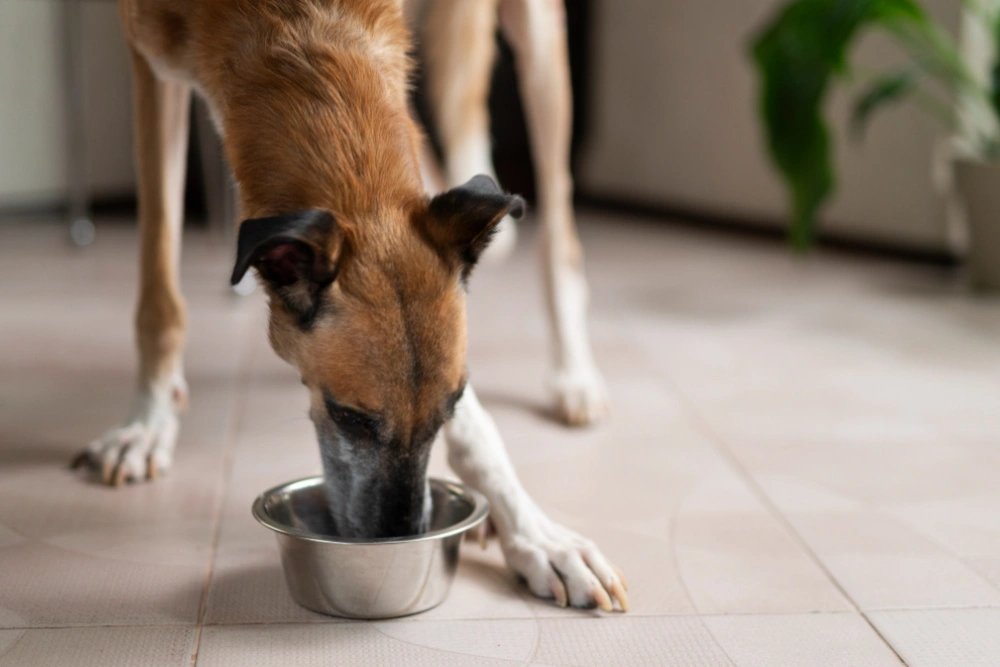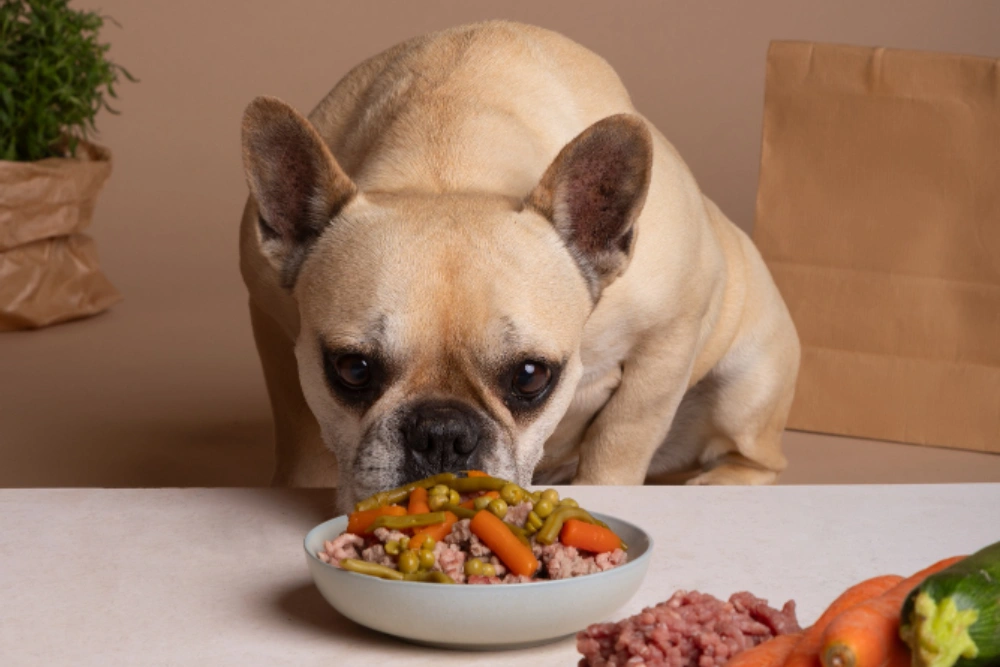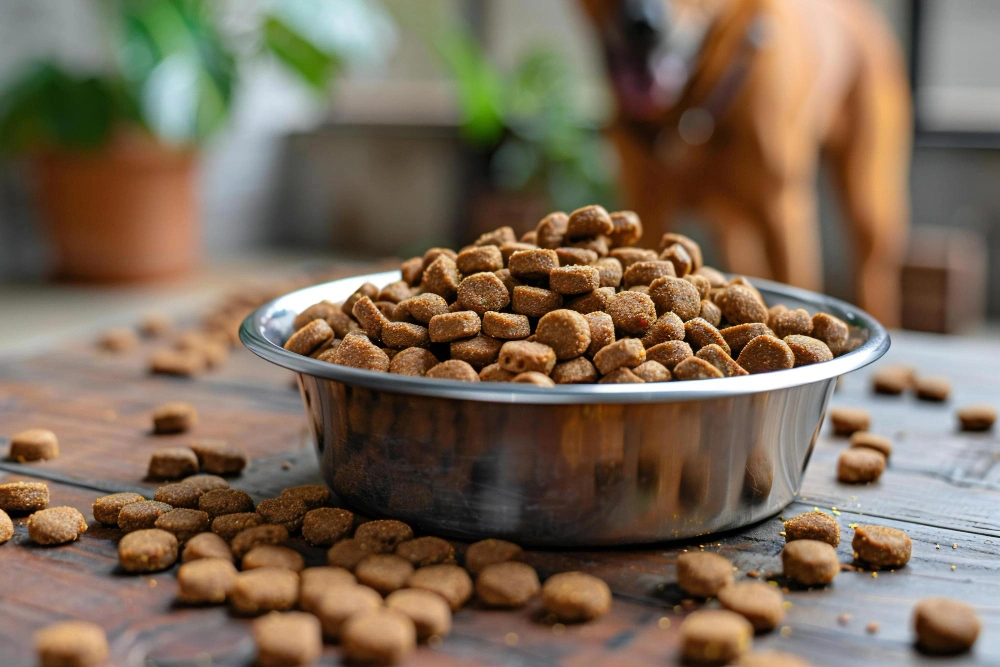If you have been browsing the pet food aisle or scrolling through online stores lately, you have probably noticed a rising trend: grain free dog food. Pet owners are becoming more conscious about what they are feeding their furry companions, and nutrition plays a huge role in keeping dogs healthy, happy, and active. But with so many options on the market, is grain free really the right choice for your pup?
In this blog, we will dive deep into what grain free dog food is, the potential benefits, possible concerns, and how to decide if it is suitable for your dog’s lifestyle. Along the way, we will cover expert insights, common myths, and practical tips for choosing the best formula for your four-legged friend.
What is Grain Free Dog Food
Grain free dog food simply means that the formula is made without traditional grains such as wheat, corn, barley, oats, or rice. Instead, alternative sources like sweet potatoes, peas, lentils, or chickpeas are used to provide carbohydrates and fiber.
Many brands promote grain free recipes as being closer to a dog’s ancestral diet, which was primarily protein-rich and low in grains. While domestic dogs are not wolves, the concept has caught the attention of pet owners seeking a more high-protein, low-carbohydrate diet for their pets.
Why Grain Free Diets Became Popular
The shift toward grain free options in dog food did not happen overnight. A few major factors led to this surge:
- Pet allergies and sensitivities: Some dogs struggle with food intolerances, leading to itchy skin, digestive upset, or ear infections. Removing grains can sometimes ease these issues.
- Ancestral diet marketing: Pet food companies emphasized a return to “biologically appropriate” meals resembling what wild dogs would eat.
- High demand for premium foods: Pet parents are treating dogs like family and want them to eat “clean” and wholesome meals.
- Trends from human diets: As gluten free, paleo, and keto diets grew in human nutrition, similar philosophies spilled over into the pet industry.
Key Benefits of Grain Free Dog Food
Choosing grain free dog food can come with several potential benefits depending on your dog’s individual health needs:
- Easier digestion for sensitive stomachs Dogs with grain intolerance may find relief from bloating, diarrhea, or vomiting when switched to a grain free formula.
- Improved skin and coat health Many dogs see reduced itchiness and shinier coats when their diet eliminates potential allergens.
- More energy and stamina Protein-rich recipes can boost vitality and support active breeds that need higher levels of energy.
- Weight management With fewer fillers, grain free options may help regulate calorie intake and prevent obesity.
- Better muscle development High-quality proteins contribute to lean muscle mass, supporting growth and recovery.
Things to Consider Before Switching to Grain Free
While there are many advantages, it is important to weigh a few key considerations:
- Not all grains are harmful: Healthy whole grains like oats and brown rice are well-tolerated by many dogs. Eliminating them is not always necessary.
- FDA investigation into heart health: Some studies suggest a possible link between certain grain free diets and canine dilated cardiomyopathy (DCM), particularly when recipes rely heavily on legumes. More research is still ongoing.
- Cost factor: Grain free options are often more expensive than regular kibble.
- Every dog is different: What works for one may not work for another. Puppies, seniors, and large breeds may require different nutritional profiles.
How to Choose the Right Grain Free Dog Food
If you are considering a grain free formula, keep these tips in mind when shopping:
- Check the protein source: Look for named meats like chicken, beef, lamb, or salmon as the first ingredient.
- Avoid excessive fillers: Too many legumes or potatoes may not provide balanced nutrition.
- Read the guaranteed analysis: Ensure the formula includes essential nutrients, omega fatty acids, and vitamins.
- Match to your dog’s lifestyle: Active breeds may thrive on high-protein formulas, while less active dogs need balanced calories to prevent weight gain.
- Consult your vet: Always get professional advice, especially if your dog has underlying health concerns.
Popular Alternatives to Grain Free Diets
If you are unsure about going completely grain free, there are alternative feeding styles that may fit your dog’s needs:
- Limited ingredient diets Focused on simplicity with fewer ingredients to minimize sensitivities.
- Whole grain options Using easily digestible grains like oats or brown rice.
- Raw or freeze-dried diets Mimicking a natural raw food diet with minimal processing.
- Air-dried or dehydrated dog food Offering a less processed, nutrient-rich alternative.
Why Grooming Tools Matter for Your Dog’s Health
Before diving into the list, let’s quickly discuss why investing in proper dog grooming tools is essential:
- Reduces shedding and matting
- Maintains healthy skin and coat
- Prevents painful nail overgrowth
- Promotes better hygiene and odor control
- Improves bonding between you and your pet
And the best part? With the right dog grooming kits, you do not need to visit an expensive groomer every few weeks, you can groom your dog at home with ease.


Myths and Misconceptions About Grain Free Dog Food
There is a lot of debate and confusion around this trend. Let’s clear up some common myths:
- Myth 1: All dogs are allergic to grains.
- Truth: Grain allergies are actually rare. Most food allergies come from proteins like beef or chicken.
- Myth 2: Grain free automatically means healthier.
- Truth: The overall quality of ingredients matters more than whether grains are present or not.
- Myth 3: Grain free prevents obesity.
- Truth: Portion control and exercise are the main factors in maintaining a healthy weight.
- Myth 4: All grain free diets cause heart problems.
- Truth: Research is ongoing, and not all formulas are linked to DCM. Quality of ingredients and formulation play a huge role.
Signs Your Dog Might Benefit from Grain Free Food
Not sure if grain free is the right choice? Watch for these signs that may indicate your dog could benefit from a diet change:
- Chronic itching or hot spots
- Recurring ear infections
- Frequent digestive issues
- Dull coat or excessive shedding
- Low energy despite a balanced routine
FAQs on Grain Free Dog Food
- Is grain free dog food better for all dogs?
Not necessarily. Some dogs thrive on grain free, while others do well on diets with healthy whole grains. It depends on your dog’s age, breed, and health condition. - Can puppies eat grain free dog food?
Yes, but choose a formula specifically designed for puppies with the right balance of protein, calcium, and fat for growth. Always consult your vet first. - Does grain free dog food cause heart disease?
There is ongoing research into a possible link between certain grain free diets and heart conditions. Speak with your veterinarian to make an informed decision. - How do I transition my dog to grain free food?
Make the switch gradually over 7–10 days by mixing increasing amounts of the new food with the old food to avoid digestive upset. - What should I look for on the label?
Look for real meat as the first ingredient, balanced nutrients, and a formula that fits your dog’s size, breed, and activity level.
Conclusion
Grain free dog food can be an excellent choice for some dogs, especially those with sensitivities or specific dietary needs. However, it is not a one-size-fits-all solution. The key is to focus on high-quality ingredients, balanced nutrition, and professional guidance from your vet.
Your dog’s health and happiness should always come first. Whether you choose grain free or not, being mindful about their nutrition will keep tails wagging and hearts healthy for years to come.
Citation
Fryer, J. S., DVM. (2025, April 22). Are Grain-Free diets bad for dogs? PetMD. https://www.petmd.com/dog/nutrition/are-grain-free-diets-bad-for-dogs
Tracks, A. (2025, August 19). Grain-Free pet diets: What Sydney pet owners should know. Animal Tracks Veterinary Clinic. https://www.animaltracksvet.com.au/truth-about-grain-free-pet-diets-what-every-pet-owner-should-know/
Tracks, A. (2025, August 19). Grain-Free pet diets: What Sydney pet owners should know. Animal Tracks Veterinary Clinic. https://www.animaltracksvet.com.au/truth-about-grain-free-pet-diets-what-every-pet-owner-should-know/

